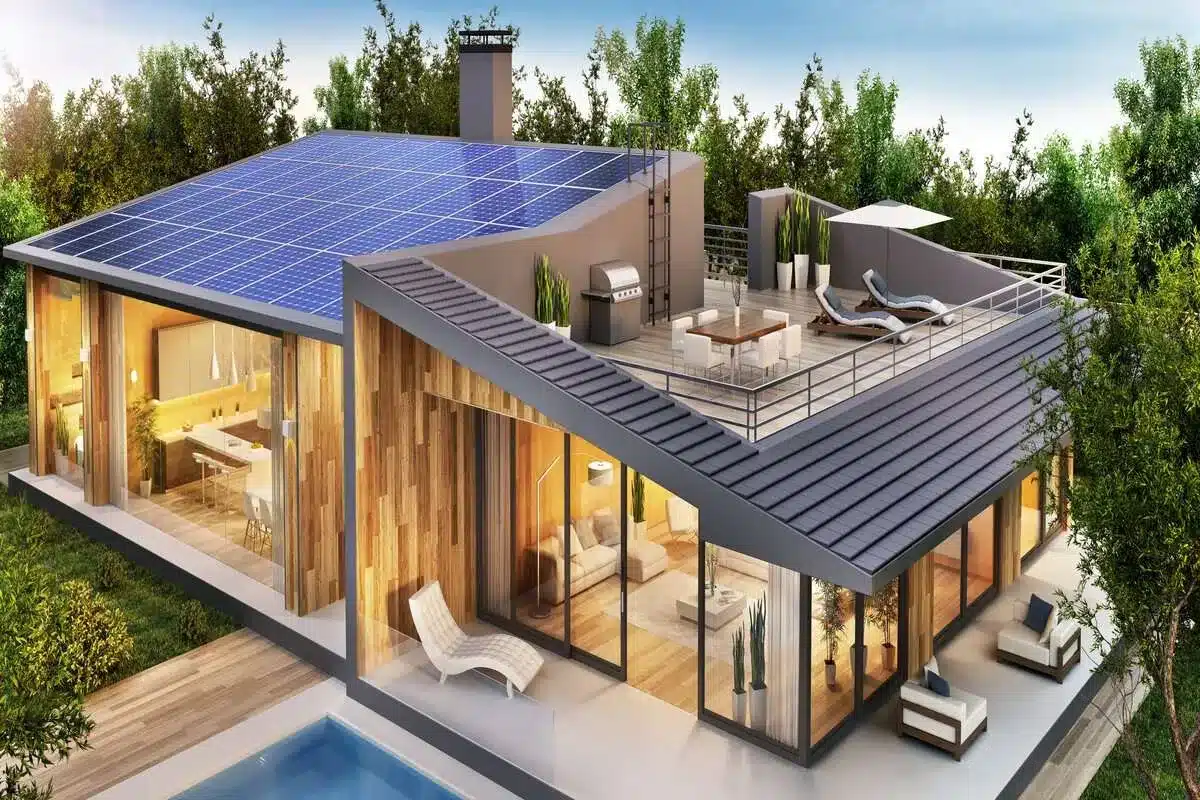The modern home has evolved into a hub of intelligent design and energy efficiency, where technology meets sustainability to create a new standard of living. Solar power and smart home technology have become two pillars of this transformation. Together, they form a dynamic partnership that empowers homeowners to reduce energy costs, minimize environmental impact, and enjoy greater convenience. Solar energy provides the renewable foundation, while smart home systems manage, optimize, and distribute that power intelligently. This combination doesn’t just change how homes operate—it redefines how people live, blending innovation, comfort, and environmental responsibility seamlessly.
Solar power and innovative technology complement each other perfectly. Solar panels capture clean energy from the sun, while innovative systems control how that energy is used, stored, and distributed throughout the home. This integration enables automatic regulation of power usage, ensuring that no electricity is wasted. Smart thermostats, lighting systems, and appliances can all communicate with the home’s energy network, adjusting their functions based on available solar energy. For example, an innovative system may delay charging an electric vehicle until solar output is at its highest, maximizing efficiency. This harmony between production and consumption allows homeowners to enjoy lower energy bills while reducing their carbon footprint. The result is a balanced ecosystem where clean power fuels intelligent living—creating homes that not only think for themselves but also act in favor of the planet.
Smart home systems elevate the way solar power is harnessed and managed. Traditional solar panels generate energy during daylight hours, but smart controllers and monitoring systems ensure that power is consumed and stored efficiently. Real-time data allows homeowners to see how much energy is being produced, used, or stored in batteries. This transparency empowers users to adjust habits for greater sustainability. Companies like North Valley Solar Power have been instrumental in integrating innovative technologies with solar energy systems, allowing homes to achieve genuine energy autonomy. These advancements make it easier for homeowners to understand and manage their power consumption through mobile apps, voice commands, and AI-driven automation. For instance, smart devices can automatically reduce energy draw from the grid during peak pricing hours or use stored solar energy when sunlight is limited. This synergy ensures consistent performance, optimal savings, and a seamless user experience built on innovation.
One of the most transformative aspects of combining solar and innovative technology lies in energy storage. Modern battery systems can store excess solar power generated during the day for use at night or during cloudy weather. When integrated with innovative technology, these batteries can intelligently determine when to store or release energy based on household demand. This creates a system that operates almost entirely independently of the electrical grid. Homeowners can also program their systems to prioritize energy flow to essential appliances during power outages, ensuring safety and convenience. The combination of battery storage and intelligent management not only stabilizes household energy use but also enhances resilience against unpredictable utility fluctuations. This independence from traditional energy infrastructure reflects the future of home sustainability—one where efficiency, comfort, and reliability coexist harmoniously through innovation.
Data-driven automation is the bridge that connects solar energy with smart living. Smart home hubs gather real-time information from sensors, appliances, and solar systems to make informed energy decisions. For instance, they can detect when rooms are unoccupied and automatically adjust temperature or lighting, saving power without sacrificing comfort. The use of AI and predictive algorithms allows systems to anticipate user behavior, adjusting energy usage to align with patterns and weather conditions. These capabilities make solar-powered homes not only efficient but also intuitive. Homeowners gain insight into daily, weekly, or monthly energy reports, which help identify areas for further optimization. Automation reduces waste and ensures that every unit of solar power contributes effectively to household operations. The result is an intelligent ecosystem where clean energy meets digital precision, empowering homeowners with total control over their consumption while maintaining a sustainable lifestyle.
The integration of solar energy and smart home systems offers unparalleled convenience. Homeowners can control lighting, temperature, and appliance operation directly from their smartphones or through voice-activated assistants. Imagine a home that automatically adjusts blinds to let in sunlight during the day while running on stored solar energy at night. The connection extends beyond comfort—it’s about creating an environment that adapts seamlessly to human needs while conserving energy. Smart meters and connected devices communicate constantly to balance efficiency with comfort. These features not only simplify home management but also contribute to a lower ecological footprint. As technology advances, the potential for greater integration continues to grow, transforming homes into intelligent energy hubs capable of responding to environmental and personal demands simultaneously. This evolution represents a shift toward more sustainable, responsive, and efficient living powered by clean energy and intelligent design.
The growing relationship between solar power and smart home technology marks a significant step toward global sustainability. As innovations continue, systems will become even more interconnected—linking homes, vehicles, and local power grids in energy-sharing networks. Smart grids will allow communities to exchange excess solar energy, strengthening resilience and reducing overall dependence on fossil fuels. The future home will operate as part of a broader clean-energy ecosystem, where every device and appliance contributes to a collective goal of environmental preservation. Solar technology and automation together are paving the way for this future, where sustainability doesn’t mean sacrificing convenience but enhancing it. As renewable energy becomes the norm and digital systems become more intuitive, smart solar homes will lead the transition to cleaner, more efficient living worldwide. This technological partnership is redefining the relationship between energy, innovation, and everyday life.
The connection between solar power and smart home technology represents more than convenience—it signifies progress toward a sustainable and intelligent way of living. Together, they reduce environmental impact, lower energy costs, and provide homeowners with greater control and independence. Innovative systems transform solar energy from a static resource into an active, adaptable power source that supports modern lifestyles. With continued innovation, this integration will only deepen, shaping homes that are energy-efficient, environmentally conscious, and technologically advanced. The union of solar power and innovative technology demonstrates that sustainability and comfort can coexist, creating a future where innovation fuels responsibility and every home becomes a model of green intelligence.
YOU MAY ALSO LIKE: How HMS Photovoltaik is Revolutionizing Solar Power

